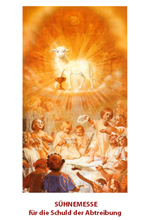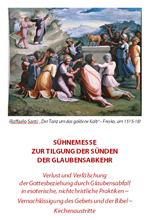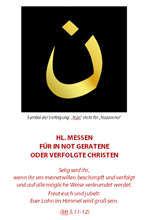As Christians following Jesus we are called to bless. The blessing springs from the loving heart of God and has the power on earth to let everything in our life take a turn for the better. If you want to become a blessing for others, the following questions might be interesting for you:
1. Freedom
Doesn’t God bless all people anyway?
God loves all people without exception. But true love always includes freedom as well. Thus, God lets everyone decide freely: Do you want to receive the blessing of Jesus and pass it on – or not? We are always invited to say “Yes!“ to God’s blessing (cf. Dtn 30:19).
2. Blessing Mission
Who has the authority to bless?
Through the baptism every Christian has received the power and the mission to bless in the name of Jesus. (so-called baptismal priesthood; cf. Gen 12:2-3). The more a blessing concerns ecclesial and sacramental life, the more its administration is reserved to bishops, priests and deacons.
On the other hand, in the Sacrament of Matrimony the spouses have the mission to bless their family – be it through mutual blessing or through the Father and Mother Blessing. Here, it is particularly advisable to first also ask God for forgiveness on behalf of the family members and then ask for the blessing for them (cf. 1 Cor 7:14).
Everyone is thus particularly commissioned by God to bless their personal area of responsibility.
3. Holy Ignorance
Why does God not (immediately) fulfill some blessing requests?
God (Jesus) sees my whole life. He knows what will really become a blessing for me, and which prayer intentions in reality could be harmful for me (cf. Mt. 6:8). Therefore it is important to give full freedom to God when it comes to blessing. Anything else would be magical thinking, which means, God would only be there to implement my requests (cf. Rom 11:35). The blessing always works, but sometimes differently and better than we may imagine in our own thinking (cf. Lk 11:13).
4. Entrust Everything to Jesus
How often shall I bless?
Blessing is not a one-time event aimed at a specific purpose, but it should become an attitude of the heart and a way of life. When God gives His blessing, He does not only want to bless a specific intention but also wants to transform the blessing person her-/himself. Thou shalt not love the gift more than the giver (cf. Lk 17:11-19).
The blessing comprises much more than just an individual, purposeful thought. It therefore makes sense to invite people themselves after administering the priestly blessing to them, e.g. to pray a nine-day novena to Jesus: “Jesus, I surrender myself to You, take care of everything!“
5. Aids for Blessing
How shall I bless?
Blessing is the trustful asking of God’s grace. It is a beautiful custom to draw a sign of the cross with the thumb on the forehead of the fellow human being (spouse, children etc.). In doing so, one is also welcome to make use of Holy Water. When the fellow human beings are not present, one can speak a prayer of blessing from the distance. A prayer of blessing could be as such: “Through the power of God, which works in this Holy Water, bless, heal, protect, guide etc. N.N.“
6. Connection to Jesus
Are there obstacles to blessing?
The power of blessing is rooted in our deep connection to Jesus Christ through the Sacrament of Baptism. He who has turned away from Jesus through a grave sin is also less receptive to the blessing. Through conscious conversion (best in the wake of the Holy Confession) and the trustful surrender to the will of God he opens for the blessing anew.
7. Different Blessings
How can I protect my house from negative influences?
Again and again, people report about inexplicable phenomena in their living space, which may become a persistent burden (as for example frequent nightmares, anxiety and fears or even acoustic or visual appearances). In this case, commission a knowledgeable priest to bless the whole house and possibly also detach the deceased from the house and from the persons living in the house (upon the intercession of St. Michael the Archangel).
Irrespective of this, the blessing of the house on the feast of Epiphany on 6 January, during which one walks through the house with incense and Holy Water (preferably with Epiphany Water*), praying and blessing, is a beautiful custom.
Is there a blessing for the desire to have children resp. during pregnancy?
Every couple has the desire to have healthy children, and yet the wish to have children again and again remains unfulfilled. Medicine can help in some cases, but today’s technological possibilities are not always morally acceptable (for example, an artificial insemination would in no case be admissible because usually the dying of other inseminated ova is accepted). Apart from medical reasons there may also be spiritual obstacles which make a pregnancy difficult. Here, the priestly blessing, which can eliminate certain obstacles, can be of great help. During pregnancy the parents can ask God for the thriving of the child and a good birth through the blessing of the mother administered by the priest (best three times during the pregnancy – therefore every three months).
Which blessing helps with illnesses and age-related ailments?
Particularly for cases of severe illness the Anointing of the Sick is to be mentioned first. In it, Jesus Himself comes to you in the power of the Sacrament, lays His hand upon you and annoints you with the oil (the power of the Holy Spirit). The Sacraments of the Eucharist and of Confession also have a healing effect, particularly in the spiritual/mental sphere. Beyond this, there are different possibilities of healing blessings, as for example the Blessing of St. Maurus, the Blessing of St. Blaise or the blessing with St. Serapion Blessed Oil specially consecrated by the Bishop.
May I also make use of blessings outside Christianity?
Necessity is the mother of invention, as the popular saying goes, and thus a broad range of salvation-promising practices developed, which are in contradiction to our Christian faith. Therefore please do not call any harmonisers, self-appointed curse lifters, dowsers or other magicians and shamans for help. They do not bring any blessing into your life.
In particular occult or spiritistic practices instead are rather a grave offence against the relationship with God. For the medical area one finds esoteric forms of treatment such as homeopathy, Bach flowers, kinesiology, acupuncture etc., which do not stem from God. Whereas conventional medicine has scientific substance, such therapy forms are understood as spiritual remedies and eventually as a substitute for the Sacraments of Healing offered by God.*
Man, however, as a creation of God can only find healing in the encounter with HIM, not in the encounter (only) with himself (basic feature of esotericism). Only by experiencing that we are oriented towards a divine You (which loves and accepts us unconditionally) do we learn to accept and love ourselves and our neighbour in truth. As a consequence of these God experiences we encounter each other also in the depth of our being, experience healing and can thus also accept ourselves in our failures and weaknesses. Therefore the Christian blessing always invites us to deepen this attitude, to forgive and thus also be able to bless enemies.
8. The Biggest Source of Blessing is the Holy Mass
Why is the Holy Mass (Mass of Atonement) the biggest source of blessing?
The guilt which we have brought upon ourselves through our misconduct as well as the one of our families and ancestors is an impediment to God’s flow of blessing. This guilt is often too big for us to be able to make up for it. Therefore, Jesus offers Himself to us. He wants to pay for our guilt and atone for it. He already did this when He died on the cross. He does it for us concretely today when we ask Him for it in the Holy Mass, because the historic sacrifice of Jesus on the Cross is made present during the words of consecration in a hidden, unbloody manner.“ (YC 208)
When we then receive Jesus in the Holy Communion, God fills us with all the grace and all the blessing of Heaven (cf. Eucharistic Prayer I). “... the Eucharistic sacrifice, ... is the fount and apex of the whole Christian life.“ (LG 11)
Therefore, the Mother of God asks to celebrate Masses of Atonement: “The priests shall celebrate Holy Masses... When the priests – surrounded by the people – stand before God, holding the Most Sacred Body and the Precious Blood of Christ in their hands, they always request mercy, the forgiveness of sins and graces of blessing from Him. The Holy Masses save the sinning mankind.“ (Lichen, 1850)
Masses of Atonement can be ordered with the Brothers. There are, among others, the following intentions: Mass of Atonement/Holy Mass... for the guilt of abortion, ... for the guilt of the Second World War, ... for the atonement of the sins of apostasy, ... with the request for the unity of the Church and .... for Christians in need or persecuted Christians.
 |
 |
 |
 |
 |
The intentions can be extended according to the given situation. The donation for a Holy Mass is ten euros.
Summary
The blessing ultimately is much more than just a “well-meant word“. In the blessing we connect ourselves with the omnipotence of our Father in Heaven and trust HIM that H e Himself works the blessing beyond our good wishes, which is directed towards our salvation in this life and in eternal life (cf. Eph 3:20-21).
Blessing is the “strongest weapon“ against all lovelessness, all hatred and all evil in this world – all this is overcome by us in the name and in the power of Jesus Christ (cf. Rom 8:35-39)!

